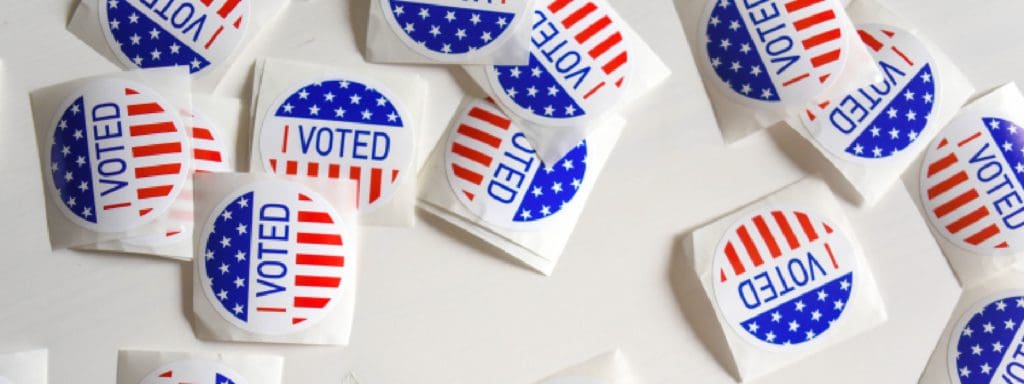It has been a little over a month since I last wrote you. As you may know, I try to make decisions based on data and the data was clear – everyone needed a break in August. For some of us, we were able to get away for a week or two to clear our minds, spend (socially distant) time with dear friends and family, and reflect on a busy fall ahead. For others, the work of providing for community in this unprecedented time did not waiver, even for the hot summer months.
But another shared experience we had in August was that we likely took some time to watch at least some of the conventions organized by our nation’s two political parties. The two conventions put forth two radically different visions for the United States of America. Cable news pundits, newspaper columnists, and Twitter influencers all shared similar takes on the contrast. John Zogby, an author and pollster, illustrated this point on a recent podcast episode and reported in The Guardian: “We didn’t get a portrayal of disagreements; we got a portrayal of two completely different realities and that’s kind of astounding. If a Martian came down and watched both conventions, they would be puzzled and get back on the ship. It was amazing, a completely different reality about COVID, about the economy, about Black Lives Matter.”
And while our unprecedented times seem to become more precedented by the day, I am certain that we will look back at 2020 with awe for the number of things we’ve collectively had to deal with as a people. In addition to a global pandemic that has already taken nearly 190,000 people, we are living against a backdrop of widespread civil protests on a scale that we have not seen since the late 1960s. And that doesn’t include the various natural disasters people have faced across the country, including fires in California and Colorado, floods in Iowa, and hurricanes in the South.
But I want to implore all of us, as leaders in this critical sector of our economy and country, to consider our roles as individuals and as organizations in how we chart a more unified vision moving forward. I was quite struck with the tone at the conventions that we had seemingly irreconcilable visions for the U.S. We live in a multiracial, pluralistic democracy that, in order to be successful, requires its people and government to define and then express its common values in public policy. The seemingly irreconcilable visions of our country play themselves out in our cities, small towns, suburban centers, and rural communities every single day – and it will be our work in civil society to weave a better path. I wholeheartedly believe it is our responsibility to craft the vision for a democracy with our elected officials, and not the other way around. We hold that power and we need to stop waiting for our elected officials to do it for us.
So how do we even go about creating a more unified vision that gets lived out in our nation’s policies and norms? We must reach deeply into our individual and collective values and ask ourselves: What is the kind of country we want to live in? Who do we want to be as individuals, as families, as communities, and as a nation? And which elected officials are most capable of partnering with civil society to help craft this vision and bring it to life?
Our first step is to encourage everyone on our staffs, our board, our volunteer teams – and yes, our friends and family – to vote. Make sure everyone you know is registered, that they know how and where to request a mail-in ballot if they need to, and that they cast their ballot on or before November 3, 2020. Regardless of who anyone votes for, voting is the expression of the shared responsibility for bringing to life our collective vision. It is the only way in which we can move forward, even if the vision that we would prefer isn’t the one that prevails in November.
And in case you still need resources on how to engage anyone during this election cycle, please visit our Nonprofit Voice 2020 Election Center. As I hope you have come to expect with Independent Sector, we will have other opportunities to continue to engage on the results of the election and our path forward in the future.
As always, thanks for your partnership and engagement.



